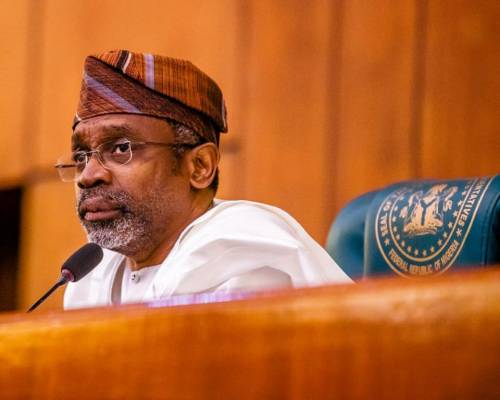The Speaker of the House of Representatives, Femi Gbajabiamila, has defended his promotion of the Control of Infectious Disease Bill, arguing that its
The Speaker of the House of Representatives, Femi Gbajabiamila, has defended his promotion of the Control of Infectious Disease Bill, arguing that its content and timing was appropriate, PremiumTimes is reporting.
He also pledged that there would be a public hearing where Nigerians would be given the opportunity to contribute to the draft law, adding that the bill was conceived in the best interest of the Nigerian people and no one else. Many Nigerians had rejected a move by the House of Representatives to repeal the Quarantine Act and replace it with the Control of Infectious Diseases Bill. The bill, which scaled second reading before it was stood down last week, has 82 sections.
Sponsored by the speaker, the bill seeks to strengthen the Nigeria Centre for Disease Control, NCDC, and make it more proactive and not just reactive and function only when there is an outbreak. The bill seeks to empower the president, the minister of health as well as the di rector-general of NCDC, and the institutions they head, to make regulations on quarantining, vaccination and prevention of infectious diseases in Nigeria.
Gbajabiamila said the allegation that the bill is a sinister attempt to turn Nigerians into guinea pigs for medical research while taking away their fundamental human rights was far from the truth because as representatives of the Nigerian people, members of the House would never contemplate doing anything that would jeopardise the wellbeing of the citizens.
“Suffice it to say that none of these allegations are true. Unfortunately, we now live in a time when conspiracy theories have gained such currency that genuine endeavours in the public interest can quickly become mischaracterised and misconstrued to raise the spectre of sinister intent and ominous possibility. Even now, the government remains vulnerable to claims that some directives already being implemented to manage the present crisis do not have the backing of the law and therefore cannot withstand judicial scrutiny.
“I disagree wholeheartedly with the suggestion that this is not the ideal time to seek reforms of the infectious diseases and public health emergency framework in the country. The weaknesses of the present system have already manifested in the inability of the government to hold to proper account those whose refusal to adhere with Nigeria Centre for Disease Control (NCDC) guidelines led to the further spread of the coronavirus in Nigeria. We have had people break out from isolation centres, and others, who fully aware of their status chose to travel across state lines on public transport.”
He said as the number of those currently infected by the coronavirus continues to rise alongside the number of those who have died, there is no timeline for when the disease will pass, and nobody can predict when the next public health crisis will occur, just as nobody predicted the present predicament.
“We cannot tie our own hands in the fight against this disease. Whether we choose to accept it or not, the world we live in has changed irretrievably. There is no ‘normal’ to return to as this present crisis has laid bare the fundamental weaknesses in our systems of law and policy and left our nation at risk of devastating outcomes on all sides.
The speaker added that citizens may sometimes disagree with the how and the why of policy proposals, but that the parliament of the people is not an echo chamber.
“Our disagreements must be grounded in a shared recognition that our present travails demand urgent interventions. And we must not allow ourselves to become victims of the cynical assumption that every policy proposal or response is a result of personal inducement or a grand conspiracy to bring harm to the people on whose behalf we hold political office.”
“The Control of Infectious Diseases Bill will be put forward to a public hearing where stakeholder contributions will be sought to make improvements to the Bill before it is reviewed and debated by the Committee of the whole. It is from the accumulation of these myriad views, suggestions and good faith critiques from within and outside the House that we will arrive at final legislation that meets the present and future needs of our country, and which we all can support in good conscience,” he said.
The Speaker added that the social distancing guidelines that the House and the whole country operate for the time being would not allow for a usual format of public hearing, but that “If a socially distant public hearing becomes workable, we will certainly explore that option.
